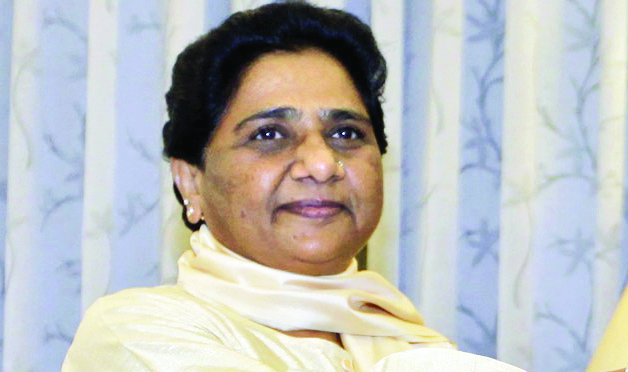Victory and defeat are a part of elections but the polls in Uttar Pradesh have not just brought defeat for the Bahujan Samaj Party but have spelt doom for Mayawati.
The BSP with just 19 seats has touched its nadir and more than the loss of seats, it is the loss of her Dalit base votes that could lead to the decimation of the party.
The BSP, which began its political journey in 1991 by winning 12 seats, has never looked back. It won 67 seats in 1993 and 1996 and then increased its tally to 98 in 2002 and formed a majority government in 2007 with 206 seats. In 2007, it slipped down to 80 seats and faced total rout in the 2014 Lok Sabha elections. A former BSP functionary explains, “The BSP grew gradually under the leadership of Kanshi Ram and is getting annihilated under Mayawati. Immediately after Kanshi Ram’s death in 2006, she benefitted from the sympathy wave and won 206 seats in 2007 but after that the party has been going downhill. She has failed to address the aspirations of Dalits and has not allowed a second rung leadership to develop. Senior leaders are leaving the party and she is facing allegations of selling tickets.”
These elections have confirmed that Dalits have finally moved away from the BSP and Mayawati will have to rethink her brand of politics if she wants to survive in future. What seemed as an aberration in the 2014 Lok Sabha elections, has consolidated as a trend in these polls.
The BSP, which worked intensively on the Dalit-Muslim combination, seems to have lost both. Mayawati, in every speech during the election, asserted that Muslims should vote for the BSP in order to keep the BJP at bay and this apparently led to reverse polarisation of Hindus, which worked in the BJP’s favour.It was this that also led to the defeat of two of the three members of the Mukhtar Ansari family in their own bastion. The Brahmins had deserted the BSP in the Lok Sabha elections.
Mayawati, in every speech, asserted that Muslims should vote for BSP in order to keep BJP at bay and this apparently led to reverse polarisation of Hindus.
The main cause for the BSP rout, according to party sources, is the failure of Mayawati to recognise the changing face and mood of Dalits.
The new generation of Dalits is no longer like the Dalits of yore. They are equipped with mobile phones and are active on social media. They are fully connected with political realities and cannot be browbeaten into submission. The young Dalits ask questions and want to know what their party has done for them beyond symbolism of erecting Dalit memorials. “Mayawati continued to take Dalits for granted and her insecurity prevented her from

